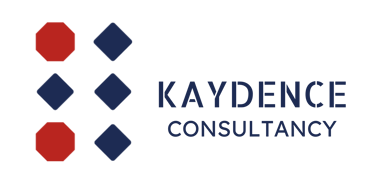Kaydence partners with the CSH to drive innovative solutions in education and healthcare.
The Role of AI in Modern Marketing Strategies
Artificial Intelligence (AI) is revolutionizing modern marketing by enhancing personalization, automating processes, and optimizing data-driven decision-making. In The Role of AI in Modern Marketing Strategies, we explore how AI-powered tools like chatbots, predictive analytics, programmatic advertising, and voice search optimization are transforming customer engagement and business growth. Stay ahead of the curve by understanding how AI is reshaping the future of digital marketing.
MARKETING
2/5/20253 min read


Artificial Intelligence (AI) is transforming the marketing landscape, helping businesses automate processes, enhance customer experiences, and drive data-driven decision-making. With AI-powered tools and algorithms, marketers can now deliver hyper-personalized campaigns, predict consumer behavior, and optimize marketing strategies like never before. In this blog, we will explore the significant ways AI is revolutionizing modern marketing and how businesses can leverage it for success.
1. AI-Powered Personalization
One of the biggest advantages of AI in marketing is its ability to analyze vast amounts of customer data and deliver personalized experiences. AI-driven personalization allows brands to:
Recommend products based on customer preferences (e.g., Amazon’s recommendation engine).
Customize email marketing campaigns based on past interactions.
Deliver dynamic website content tailored to individual users.
With AI, brands can ensure that customers see relevant content, boosting engagement and conversions.
2. Chatbots and AI-Powered Customer Service
AI-powered chatbots and virtual assistants are revolutionizing customer interactions by providing instant responses and assistance. These AI tools:
Enhance customer support with 24/7 availability.
Reduce wait times and improve user experience.
Handle multiple queries simultaneously, improving efficiency.
Platforms like WhatsApp Business, Facebook Messenger, and website chatbots allow businesses to automate responses and provide personalized customer service.
3. AI-Driven Content Creation
AI is reshaping content marketing by assisting in content generation, optimization, and curation. Some AI-powered content marketing applications include:
Automated blog writing and social media posts (e.g., ChatGPT, Jasper AI).
AI-assisted video creation and editing (e.g., Synthesia, Lumen5).
SEO optimization tools (e.g., Clearscope, Surfer SEO) that suggest keywords and content structures.
While AI can’t fully replace human creativity, it significantly speeds up content production and improves efficiency.
4. Predictive Analytics for Smarter Decision-Making
AI’s ability to analyze consumer data enables businesses to predict future trends and customer behavior. Predictive analytics helps marketers:
Understand buying patterns and preferences.
Identify potential leads and high-value customers.
Optimize ad spending by targeting the right audience.
With AI-driven insights, businesses can make data-backed marketing decisions, improving ROI and customer engagement.
5. AI in Search Engine Optimization (SEO)
SEO is becoming more sophisticated, and AI is playing a crucial role in helping businesses improve their rankings. AI-powered SEO tools assist in:
Keyword research and content optimization.
Analyzing search intent to deliver more relevant content.
Voice search optimization for AI assistants like Siri, Alexa, and Google Assistant.
Google’s AI-powered RankBrain and BERT algorithms prioritize user intent, making AI-driven SEO strategies essential for modern marketers.
6. AI in Programmatic Advertising
AI is transforming digital advertising by automating programmatic ad buying, where machine learning algorithms analyze data and bid on ad placements in real-time. This allows businesses to:
Target specific audiences with precision.
Optimize ad spend based on performance insights.
Improve ad relevancy and click-through rates (CTR).
Platforms like Google Ads, Facebook Ads, and Amazon DSP use AI to enhance targeting and bidding strategies, ensuring maximum impact.
7. AI and Voice Search Optimization
With the rise of voice assistants like Google Assistant, Siri, and Alexa, AI-driven voice search optimization is becoming crucial. Businesses must:
Use natural language and question-based keywords.
Focus on local SEO for voice search queries.
Optimize content for featured snippets, as they are often read out by voice assistants.
AI-powered voice recognition technology is changing the way people search for information, and marketers must adapt accordingly.
8. AI for Social Media Marketing
AI is playing a significant role in social media marketing by helping brands analyze engagement metrics, generate content, and manage customer interactions. Some AI-driven social media applications include:
Automated post scheduling and engagement tracking (e.g., Hootsuite, Sprout Social).
AI-powered image and video recognition for ad targeting (e.g., Facebook and Instagram algorithms).
Social listening tools that analyze consumer sentiment and trends.
With AI, businesses can create more effective social media campaigns and reach their target audience with precision.
9. AI-Enhanced Email Marketing
AI is optimizing email marketing by personalizing campaigns and automating workflows. AI-driven email marketing tools can:
Segment audiences based on behavior and preferences.
Optimize subject lines and email content for higher engagement.
Automate email sequences for lead nurturing and customer retention.
Platforms like Mailchimp, HubSpot, and ActiveCampaign use AI to improve email marketing performance and boost conversion rates.
10. AI in Visual and Video Marketing
Visual content is dominating digital marketing, and AI is making it easier to create, edit, and distribute high-quality visuals. Some AI-powered innovations in visual marketing include:
AI-generated video ads and animations (e.g., Synthesia).
AI-based image enhancement and editing (e.g., Canva’s AI tools).
Deepfake and virtual influencer marketing for brand storytelling.
AI-driven visual recognition technology is also improving ad targeting, enabling brands to deliver more engaging and relevant content.
Final Thoughts
AI is no longer a futuristic concept—it is already shaping modern marketing strategies in personalization, automation, predictive analytics, and customer engagement. Businesses that leverage AI-driven tools will gain a competitive advantage by delivering more efficient, targeted, and data-driven marketing campaigns.
As AI continues to evolve, marketers must stay informed and adapt to these innovations to maximize their impact. Are you ready to embrace AI in your marketing strategy? Let us know in the comments!
Kaydence Consultancy
Global platform for study abroad solutions, marketing strategy and your efficient research partner
Contact
Get in touch
director@kaydenceconsultancy.com
+9188916082
© 2025 Kaydence Consultancy. All rights reserved.
Designed with care | Powered by Innovation
Navigation
Company
Career
Legal
M G Road, Kochi, Kerala, India
